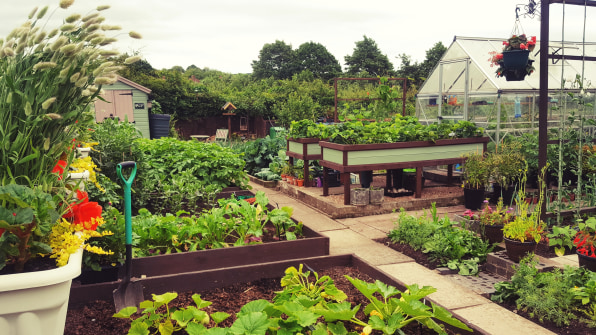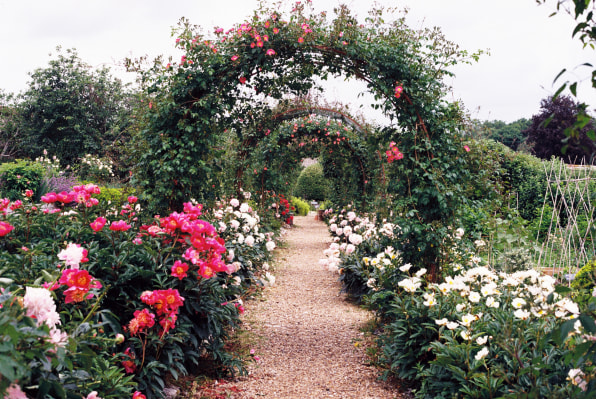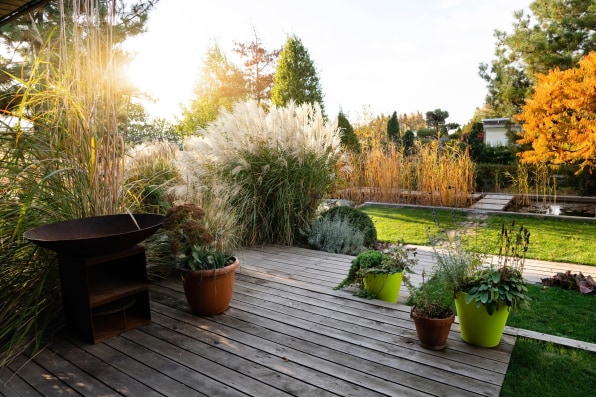- | 9:00 am
The case for ‘green prescriptions’
Gardening got many of us through the pandemic. Here’s why a dose of nature could do you good—and not just in times of crisis.

As lockdowns went into effect in the spring of 2020 to slow the spread of the coronavirus, reports emerged of a global gardening boom, with plants, flowers, vegetables and herbs sprouting in backyards and on balconies around the world.
The data backs up the narrative: An analysis of Google Trends and infection statistics found that during the first few months of the COVID-19 pandemic, country-by-country interest in gardening, from Italy to India, tended to peak just as infections peaked.
Why did so many people find themselves being pulled toward the earth in a time of crisis? And what sort of effect did gardening have on them?
In a new study conducted with a team of environmental and public health scholars, we highlight the extent to which gardening became a coping mechanism during the early days of the pandemic.
Even as restrictions related to COVID-19 have eased, we see some real lessons for the way gardening can continue to play a role in people’s lives.

[Photo: Natalee Trowbridge/EyeEm/Getty Images]
DIRT, SWEAT, TRANQUILITY
To conduct our study, we used an online questionnaire to survey more than 3,700 respondents who primarily lived in the U.S., Germany and Australia. The group included experienced gardeners and those who were new to the pursuit.
More than half of those we surveyed said they felt isolated, anxious and depressed during the early days of the pandemic. Yet more than 75% also found immense value in gardening during that same period. Whether done in cities or out in the country, gardening was almost universally described as a way to either relax, socialize, connect with nature or stay active.
More than half of the respondents reported a significant increase in the amount of time they were able to spend gardening. Other respondents found some value in growing their own food, but few felt financially compelled to do so.
Instead, most respondents saw gardening as a way to connect with their community and get some exercise.
People with more personal difficulties due to COVID-19, like the inability to work or struggling with child care, were more likely to spend more time gardening in their spare time than they had in the past.

[Photo: Annie Spratt/Unsplash]
THE GARDEN AS A REFUGE
In our analysis of written responses to the survey, most gardeners seemed to either experience a heightened sense of joy and reassurance or feel more attuned to the natural world. This seemed to have positive therapeutic and psychological benefits, regardless of age or location.
To many people, gardening became a sort of safe space – a haven from daily worries. One German gardener started seeing their garden as a sanctuary where even “birds felt louder.”
“Gardening has been my salvation,” a respondent from the U.S. noted. “I’m very grateful I can surround myself with beauty as a buffer to the depressing news COVID brings each day.”
Another German gardener wrote that their garden became their “little safe universe in a very uncertain and somewhat dangerous time. … We have learned to appreciate the so far very high value of ‘own land, own refuge’ even more.”

[Photo: Scharfsinn86/iStock/Getty Images Plus]
A GREEN PRESCRIPTION
As life returns to normal, work ramps up and obligations mount, I wonder how many pandemic gardens are already being neglected.
Will a hobby born out of unique circumstances recede into the background?
I hope not. Gardening shouldn’t be something that’s only taken up in times of crises. If anything, the pandemic showed how gardens serve a public health need – that they’re not only places of beauty or sources of food, but also conduits for healing.
In fact, several countries like New Zealand, Canada and some in Europe now allow “green prescriptions” to be issued as alternatives to medication. These are directives from doctors to spend a certain amount of time outdoors each day or month – an acknowledgment of the very real health benefits, from lowered stress to better sleep and improved memory, that venturing into nature can offer.
I also think of the people who never had a chance to garden in the first place during the pandemic. Not everyone has a backyard or can afford gardening tools. Improving access to home gardens, urban green spaces and community gardens could be an important way to boost well-being and health.
Making seeding, planting, pruning and harvesting part of your daily routine seems to open up more opportunities, too.
“I never previously had the time to commit to a garden,” one first-time gardener told us, “but [I’ve] found such satisfaction and happiness in watching things grow. It has been a catalyst for making other positive changes in my life.”
This article is republished from The Conversation under a Creative Commons license. Read the original article.




































